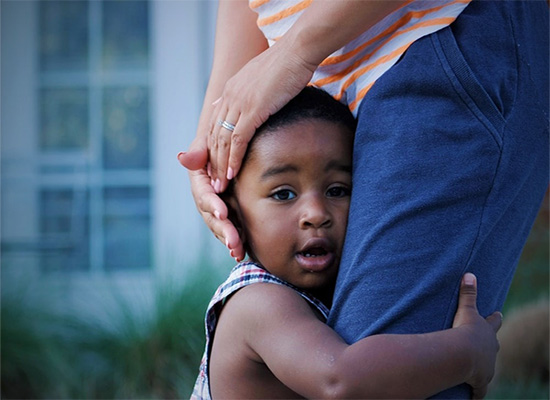
Having to leave your child at home alone isn’t the easiest decision to make, even if you your errand is only going to last a few minutes.
But if you must leave your kids alone at home, ensure you do these:
1. Confirm That Your Child Is Ready To Stay AT Home Alone
This entails looking into:
- The age and developmental stage of the child
- The length of time you’d be gone for
- Whether your child works well independently and follows directions
- The age and number of other children you’re leaving at home
- The security of the neighborhood
- The willingness of your neighbours to check in with the child during the day; and
- How ‘safe’ the child would feel staying home alone.
If all the above have been sorted, you can go ahead to:
- Have the child memorise and chant their full name, your address, and telephone number.
- Give your child a list of numbers they can call in the event of an emergency.
- Call the child to check in on them from time to time while you are out.
- Admonish the child not to open the doors/windows or go into other people’s homes (even neighbours) while you are away, without your permission.
- Make available a “safe house” to run to if the child ever feels that they’re in danger.
- Tell them which appliances they can/cannot switch on, firmly stating that cooking appliances, the iron, etc. are a no go without you or any other caretaker around.
2. Consider Your Child’s Maturity Level
Considering your child’s developmental stage is an important step to look into before leaving your child at home alone. You can quickly figure it out by answering these questions:
- Is my child mature enough to be alone for some minutes or hours even?
- Will my child be afraid if he or she is left alone at home?
- Does my child know how to react in an emergency?
Keep in mind that younger children usually have a deviant perception of time- a few minutes like 20, alone, can feel like hours to them.
It might help to consider how your kids react when they’re afraid. Some children who are left alone can easily become afraid and panic if there is no adult around.
Sometimes children do irrational things when they feel afraid, which can obviously lead to a precarious situation.
Ensure that you’ve taught your kids the proper way to react in an emergency (as best you can)? Do they know how to call for help?
What happens next if they try to heat up food and accidentally start a fire?
These questions are not to scare you; rather, they’re meant to help you ascertain if your children have all the skills—both physical and emotional—they need to handle situations on their own.
3. Let A Good Neighbour Know
If you have a trusted neighbour who can keep an eye on your child while you’re away, ask them to keep an eye out for any situation that calls for an adult’s intervention.
They can intervene if a stranger is attempting to get into your house or if your child needs help with something only an adult can provide a solution to.
4. Practice Scenarios With Them
Before leaving your children alone at home, ensure you practice what to do if someone starts breaking into the house.
Practice what to do if some friend of yours, a distant relative, a delivery guy, church member, or a colleague came knocking while you’re away.
Practice what to do if a stranger is demanding to be let in because it is an “emergency.”
The more frequently you practice, the more comfortable they will be in the case that something of such does happen. Finally, also give them a code that the stranger who comes around in your absence must recite before he or she opens the door. Again, this would work if your church is ‘old’ enough to comprehend simple instructions.
5. Leave Them Something To Do.
Children who are left alone at home often get into trouble when they have nothing engaging them.
Kids are naturally curious and when left alone, they might want to do things you’ve told them not to at this time.
Make sure they have enough entertainment or homework or a mix of both to keep them occupied while you are gone.
6. Lock The Medicine Cabinets
It’s a good thing that most medicines bear the inscription: “keep out of children’s reach”.
A child with a minor pain might decide to take a handful of colorful pills to solve a problem. So please lock the medicine cabinet in your absence and keep them out of your child’s reach.
7. Put Parental Controls On The Computer
Be sure to fortify their electronic gadgets with parental control when you are not home.
You wouldn’t want your kids to develop an alter ego from the inappropriate or PG content they see on the web when you leave the house.
No stories that touch, please.
8. Stock Up
Stock the kitchen with healthy foods for snacking, and ensure your house has everyday goods & emergency supplies.
For medicine, you can leave the precise dose of any medicine that your child needs to take, but don’t leave medicine bottles out — it could lead to an accidental overdose or ingestion, especially by the little ones.
You may also love to read: 8 Ways To Avoid Bedtime Tantrums
Leave lamps or torch lights handy in case of a power outage, and most important phone numbers — yours and those of friends, family members, the doctor, police, and fire department — that your child might need in case of an emergency.
9. Childproof Your Home
No matter how well your child follows rules, ensure you keep out of reach, anything that could be a health or safety risk.
Lock those items up and put them in a place where your kids can’t get to them, things as:
- alcohol
- prescription medicines
- over-the-counter drugs that could cause problems if taken in excess, like sleeping pills, cough medicine, etc.
- tobacco
- car keys
- lighters and matches
- Finally, we advise you never leave your child alone at least in the first 7 years without any adult supervision or except you are double sure. All the best!
Find more tips on parenting here.



